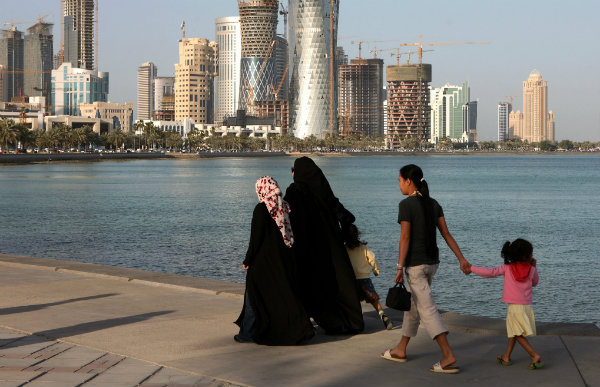The Bridges project (formerly known as Shelter Me) is a unique initiative in the Gulf region, in which Migrant-Rights.org and Hivos collaborate to improve the employment relationship between employers and their domestic workers. Part of our approach is to work with international businesses to develop a Code of Conduct to support and guide their staff in developing a healthy and professional relationship with their domestic workers. This approach was recently noticed by the International Labour Organization and included as a good practice in their new report on moving the agenda on Decent Work for Domestic Workers forward.
Most reputable businesses have a value system that informs how the business should be run and what it expects of its employers. Ethics, equality, and human rights for all are part of this value system, and this system cannot be confined to office space alone.
In the new ILO report, Bridges is taken as an example of encouraging expatriates (about half of the population in the Gulf region) to improve their treatment of migrant domestic workers. The report states that reasons why expats of certain nationalities are more likely to treat migrant workers better than nationals as “ their being compelled to comply with the codes of conduct of the foreign companies (e.g. international schools, international universities, international banks and businesses, and international organizations) that employ them in the countries of destination.” Still, it should be noted that a more favourable treatment of domestic workers by expatriates does not mean that the employment terms and conditions stipulated in a working contract are optimal.
“The ultimate goal is inclusion of domestic workers in just and fair labour laws and proper implementation of the same. In the interim, there is a need to fill a huge information gap and take proactive steps that can minimise the risk of exploitation. There is scope for business leadership to emerge on this issue.” said Migrant-Rights.org.
While the responsibility of domestic workers does not fall under the direct purvey of businesses, an abusive or exploitative relationship between staff and their migrant domestic workers would be a poor reflection on the business in question. Therefore, Bridges calls upon businesses to use our employer guide and take steps to ensure relationships between employees and their domestic workers meet the standards these businesses uphold in all their interpersonal dealings. We also call upon businesses to update their own labour conditions guidelines on standard contracts, minimum wages, task management and working hours.
For more details on the business approach to guaranteeing decent work for migrant domestic workers, please visit this page on migrant-rights.org




